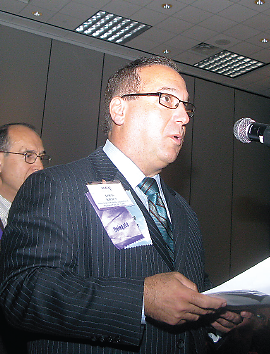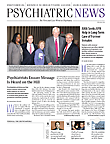The “war on drugs”—combatting the supply of cannabis and other illicit drugs through law enforcement and incarceration—is not working.
That’s what AMA delegates asserted last month when they approved a report by the AMA’s Council on Science and Public Health (CSPH) that calls for a public health approach aimed at more accessible treatment of substance use and addictive disorders and efforts to curb the demand for drugs.
At the same time, AMA delegates resisted efforts by some in the House to call for “decriminalization” of cannabis and the rescheduling of cannabinoids. Instead the AMA report asserts that “cannabis is a dangerous drug and as such is a public health concern, [that] sale and possession of marijuana should not be legalized, [and that] public healthbased strategies, rather than incarceration, should be utilized in the handling of individuals possessing cannabis for personal use.”
Louis Kraus, M.D., chief of child and adolescent psychiatry at Rush University Medical Center and a member of the Section Council on Psychiatry and the Council on Science and Public Health, emphasized that the report does not support legalization or reclassification of cannabis and does not address potential medicinal effects of cannabis, for which he said insufficient evidence exists.
“There is a multitude of risks associated with the use of cannabinoids,” Kraus told delegates at the House. “There may be certain medical benefits that we don’t understand. But the point to our paper is to try to balance those issues without making a legal determination. The AMA and the council represent medicine—it is not for us to make a legal determination about the status of cannabis.”
The CSPH report summarizes the case for a new approach to illicit drug use. “One out of every 100 American adults is behind bars in jail or prison, and the U.S. houses nearly 25 percent of the world’s prisoners despite having less than 5 percent of the world’s population,” the report states. “Since the mid-1970s, the number of people behind bars has increased fivefold, peaking at 2.2 million in 2010. More than 80 percent of drug arrests include charges for possession. . . .”
The council report adds: “Somewhat lost in the debate about legalization of cannabis are the recognized harms. Cannabis continues to be the most commonly used illicit drug in the U.S. with patterns of use trending upward, particularly among youth. . . . It is the most common illicit drug involved in drugged driving, particularly in drivers under the age of 21. Early cannabis use is related to later substance use disorders. Heavy cannabis use in adolescence causes persistent impairments in neurocognitive performance and IQ, and use is associated with increased rates of anxiety, mood, and psychotic thought disorders.”
Among the specific recommendations in the CSPH report are the following:
The AMA discourages cannabis use, especially by persons vulnerable to the drug's effects and in high-risk situations; supports the determination of the consequences of long-term cannabis use through concentrated research, especially among youth and adolescents; and supports the modification of state and federal laws to emphasize public health based strategies to address and reduce cannabis use.
The AMA believes a plea of cannabis intoxication should not be a defense in any criminal proceedings.
The AMA, in an effort to reduce personal and public health risks of drug abuse, urges the formulation of a comprehensive national policy on drug abuse, specifically advising that the federal government and the nation should . . . acknowledge that federal efforts to address illicit drug use via supply reduction and enforcement have been ineffective.
The AMA encourages national policymakers to pursue an approach to the problem of drug abuse aimed at preventing the initiation of drug use, aiding those who wish to cease drug use, and diminishing the adverse consequences of drug use; encourages policymakers to recognize the importance of screening for alcohol and other drug use in a variety of settings; and encourages the expansion of opioid maintenance programs so that opioid maintenance therapy can be available for any individual who applies and for whom the treatment is suitable.
During debate about the report, an amendment brought by delegations from California and the Pacific Rim seeking the AMA to call for decriminalization and reclassification of cannabis was defeated.■

